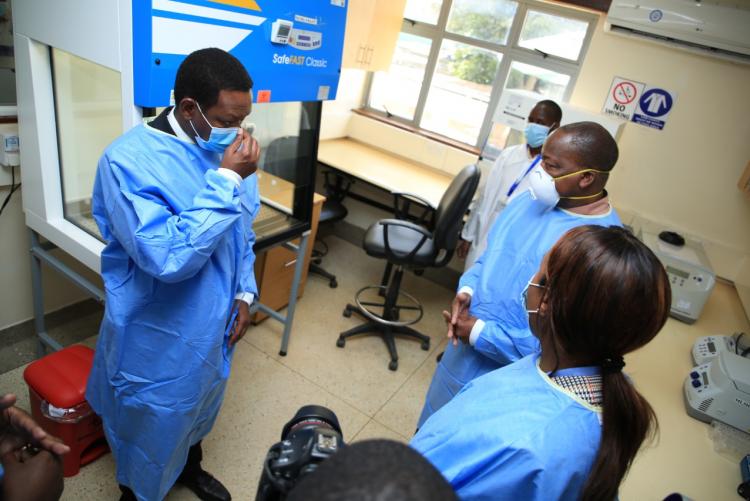The COVID-19 pandemic was declared a Public Health Emergency of International Concern by the World Health Organization (WHO) on 30 January 2020. Globally, health workers are at the front line of the interventions to combat COVID-19. While it is well known that healthcare workers (HCWs) risk contracting infectious diseases, the nature of COVID-19 exposes HCWs to new levels of risk. The individual risk to COVID-19 is further compounded by HCWs still having to take care of vulnerable patients with chronic conditions who increase the risk of transmission and patients with disability who face special challenges to access care, both preventive and curative.
Government has rolled out general interventions to limit the spread of the disease, however, the measures announced, including social distancing, and community lockdowns rely heavily on the general population behaviour change. Because of the rapid spread of COVID-19, there has been a deluge of data and information from across the globe. Kenya faces a significant shortage of health workers and disparities in their distribution. As the pandemic evolves, the average HCW has limited time to synthesize what information is relevant, receive the necessary training and ensure that they are ready to face the expected onslaught on the health system. If HCWs are unable to prioritise and plan well, then likely the pandemic will claim three victims: the COVID-19 patient, patients with chronic diseases and those with disabilities and lastly the health workers themselves.
This rapid response six month project which started 1st July 2020 aims to bridge the gap between the centralized guidelines being issued by the government and the implementation at patient and health facility level. The research team is led by Dr Richard Ayah, Senior Lecturer and Dr Chris Barasa, adjunct faculty School of Public Health. The project is funded by the Open Society Initiative for East Africa.
A team of post-graduate Master of Public Health (MPH) students are reviewing daily information on COVID-19, synthesizing information from peer review journals, the WHO and Ministry of Health around key words starting with ‘health worker protection’ ‘chronic disease’, ‘disease transmission’, disability, vulnerable populations (patients and HCWs with disability) and organized around Kenya’s health system. The team is developing short articles, guidelines, tips and identifying resources for HCWs to use in implementing their COVID-19 operational plans.
A Health Systems blog has been established and articles are being published and a database is being developed.
Image: CS Health Kagwe and Machokos Gov. Mutua tour Health Facilities in Machokos County – Courtesy @DrAlfredMuta

